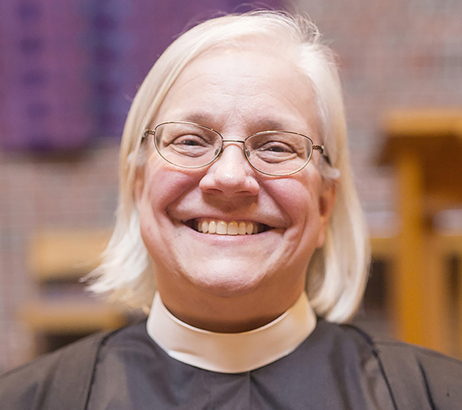“O Lord, you have searched me and known me. You know when I sit down and when I rise up; you discern my thoughts from far away.” (Psalm 139:1-2)
The Psalmist bears witness to a God who delights in our particularity! God knows and cares for each of us intimately. Even the name Immanuel – God with us – resonates with particularity. God is not with a generic human “us.” God is with us, you and me, in our communities, as deeply as God became incarnate in Jesus in first-century Palestine. God is with us, in the uniqueness of our lives and our experiences. God is with us, and that means all of us!
This is what’s on my mind as I look forward to having the Rev. Dr. Angela Parker on campus tomorrow. Dr. Parker is the second speaker in our three-part lecture series on womanist theology this fall. Over the weekend, I read Dr. Parker’s new book, If God Still Breathes, Why Can’t I? Black Lives Matter and Biblical Authority, published by Eerdmans last month.
The title of Dr. Parker’s book echoes “I can’t breathe,” the last words spoken by George Floyd, Eric Garner, and other Black men before they died in the custody of law enforcement officials. The title also echoes the language of 2 Timothy 3:16, “All Scripture is inspired by God … .” Dr. Parker reminds us that the Greek word underlying the translation “inspired” literally means “God-breathed.” Inspiration has the same root as respiration.
The point? It’s not just that the Holy Spirit once breathed into the Scriptures long ago when they were first committed to writing. It’s that the Holy Spirit continues to breathe through the Scriptures as they are read by the community of believers today.
Since the Holy Spirit continues actively to breathe through the Scriptures today, when we read the Scriptures together with others we are able to hear things differently, precisely because our experience is different from theirs. Someone whose ancestors were enslaved is likely to hear passages about masters and slaves with a depth that I cannot. A woman who has given birth will have a deep experiential connection to the passages that describe God as a woman in labor; a woman who has struggled with fertility issues will respond to the pain in the stories of women like Sarah, Hannah, and Elizabeth rather than fast-forwarding to the miraculous happy ending.
God is with all of us, and the experience that each of us brings to reading the Scriptures matters.
The Rev. Kathryn A. Kleinhans, Ph.D.
Dean
Trinity Lutheran Seminary forms leaders for Christ’s church at work in the world.
